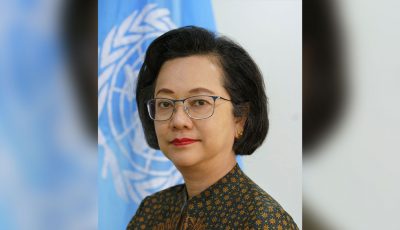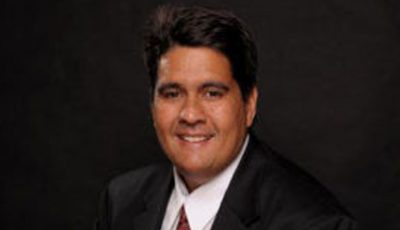BSI’s Macau-style gaming will be 1st on US soil
Saipan’s casino industry will rise or fold on the outcome of Best Sunshine International, Ltd.’s Macau-style junket operations, a gaming program that will be the first of its kind on U.S. soil.
It is expected to present challenges for regulators tasked with investigating junket operators from Asia and enforcing laws and regulations not seen or sometimes more lenient in Macau and the Asia region where the casino will draw its high rollers from, according to interviews with regulators and BSI.
Best Sunshine CEO Mark Brown said the Macau-style junket operations “ will be our next step,” as they complete the construction and prepare for the full opening of the Grand Mariana Casino Resort, a 14-story resort towering over the heart of Garapan, in April 2017. The discussion for junket operations then, he said, will be on a “profit share basis.” Slots at their temporary casino in T-Galleria do very well, he said, at $200 to $300 a day, as well as their gaming tables that collect a few thousand a day, but “VIP,” he added, “is where you make the millions.”
Dennis Amerine, a certified public accountant with over 30 years regulatory experience in the industry in Nevada and who has consulted with the island regulators as they work on their own regulations, signaled some challenges ahead for the Commonwealth Casino Commission in an interview Friday.
“It is more strict in the U.S,” Amerine told Saipan Tribune.
“In Macau, the junket operators will lease out an entire VIP room. They will bring in individuals that will help finance that junket business and they will sometimes grant their own credit,” he said. “Either a junket operator will grant credit to a player or even these other investors will grant credit to the player.
“Those type of things are much different than what we would ever allow in any of the U.S. jurisdictions,” Amerine said.
Investigating junket operators
Right now, BSI has a rolling chip program, approved by the commission, that allows players to get a 1.3 percent commission on the amount they roll or turnover, and a .1 percent of that roll for complimentary benefits.
The commission, for its part, has issued applications for junket operators but has not licensed anyone yet.
“We are examining it now,” said Commonwealth Casino Commission executive director Edward C. Guerrero. “We have received five applications. Those that I’ve seen are mostly from here, mostly Korean [applicants].”
Guerrero acknowledged that the commission would face challenges with applicants from China, for example, in their efforts to vet suitability or investigate applications.
“To investigate anyone in Asia is a major challenge for us,” Deleon Guerrero said. “To investigate someone from China is even a greater challenge. It’s illegal to investigate anybody in China.
If a Chinese were to get credit and skip town, it’s uncollectable in China,” Guerrero said on the issue of unpaid gaming credits. “Anyone who plays on credit and you don’t pay your credit and you run to China, there is no way to collect those. Unlike other jurisdictions [where] you can take them to court…You cannot do that in China because gambling debt is uncollectable.”
“It is not a legally enforceable debt,” Amerine also said.
“That’s probably the big one,” Amerine went on to say. “Trying to get information on the junket operators as they come. That’s going to be challenging. Trying to make sure that those junket operators are all suitable when they come here.”
“It’s the ability to do a thorough background investigation on both the players and the junket operators,” Deleon Guerrero said.
Another aspect that “complicates” this, Guerrero added, is with regards to U.S. anti-money laundering laws.
“Anti-money laundering in most of Asia is different from what anti-money laundering is envisioned in the U.S.,” he said. “From a U.S. perspective it’s a pretty rigid, pretty well-defined. But in Asia, I believe, it is pretty less tracked.”
Guerrero pointed to reports this month that that thieves were able to move about $81 million from Bangladesh’s account in the Federal Reserve Bank in New York, where some of the stolen money was converted into gambling chips, according to a Wall Street Journal report this month.
On concerns with casino-related organized crime, Brown said, “No one forgets that we are sitting here in the U.S. That’s why we are very respectful to the commission, the chairman, the executive director, and the commissioners, and are working together.”
“Letting Best Sunshine do whatever it is that they want to do. That’s not true,” Brown said.
Brown said the casino never forgets that federal government laws, anti-money laundering laws, and various labor hiring rules in the CNMI.
“We are following every single rule that’s out there.”
Reports of Macau casinos’ heavy involvement with criminal Chinese triad organizations “doesn’t exist. Doesn’t exist with us,” Brown said.
“We know every single individual that’s playing in our casino. Whether I give oneperson credit and I give him credit and allow him to give some other people. We have everyone’s passports, their records, their information, which is different from Macau.
“For us, when people leave Macau,” Brown said, “they look for somewhere else to go. Korea, Philippines, Vietnam, Singapore, to gamble. “Now, they have another option because of this beautiful island” under the U.S., “it’s a safe territory, safe games, federally governed by every single law…so people feel very comfortable coming here.”



























